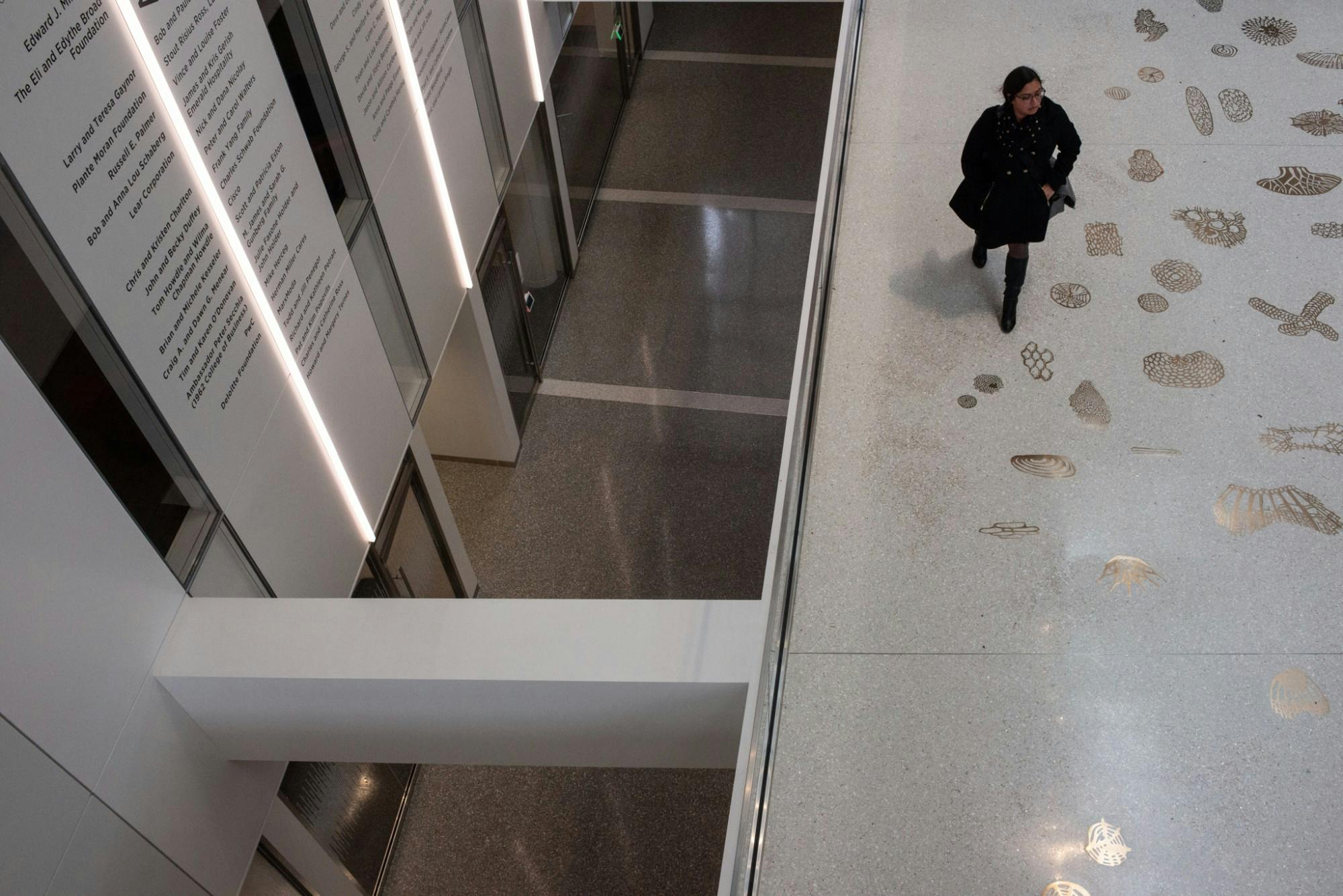As the fall 2020 semester quickly approaches, the technicalities of returning to campus have become more specific.
On Aug. 10, Michigan State University President Samuel L. Stanley Jr. sent a letter to the community with the latest information on the fall semester, including requirements for self-health screenings by faculty and staff and soon students as well, along with other strategies to keep campus safe.
"I want to make clear that MSU is carrying on with our plans to welcome students back to campus for a combination of in-person, hybrid and remote instruction," Stanley said. "As we have from the onset of the pandemic, MSU will continue to monitor the progression of this virus and use all available information from federal, state and local health experts to adapt and adjust our plans to best protect our community."
With his background as a physician focusing on infectious diseases, Stanley continues to stress the importance of personal responsibility as we return to campus.
"MSU has put numerous mitigating measures in place for the upcoming academic year to help reduce the transmission of the virus and protect you as much as possible," Stanley said. "Together, we all have a vital role in doing our part, wearing face coverings — both inside and outside — maintaining physical distance, performing proper personal hygiene and caring for ourselves and one another."
Faculty and staff are being asked to complete the official health screening form each day before beginning on-campus work. Previously, departments had their own forms for their employees, but this is an official form from the university they are required to fill out when they plan to physically go to campus.
In the letter, Stanley also said students will soon be required to complete the daily health screening before moving around campus. More information will be available in the coming days.
The information from the form will go directly to the MSU Health Care COVID-19 Triage Line and the Office of the University Physician, which is responsible for monitoring health trends on campus and all of our contact tracing efforts.
In a recent email, Stanley also spoke about the need for students to try to self isolate for two weeks before returning to campus.
"During this 14-day period, you should monitor your health, greatly reduce your contact with others and follow guidance consistent with recommendations from the Centers for Disease Control and Prevention," Stanley said.
Their recommendations include:
- Stay home as much as possible the two weeks before coming to campus
- Take your temperature twice a day and monitor for fever
- Wear your face covering while in public settings
- Wash your hands frequently and follow good hygiene practices
- Follow physical distancing guidelines (maintain six feet of space between you and others)
- Know the symptoms of COVID-19 and self-monitor for them
If students are coming from a U.S. state that has a risk level of “active or imminent outbreak,” as defined by the COVID Act Now risk map, and have stayed there for at least 24 hours, it is strongly recommended that they self-quarantine for 14 days upon arrival to campus. If students are traveling to campus from a country with a COVID-19 outbreak status, they are also strongly urged to self-quarantine for 14 days upon arrival to campus.
Additionally, Stanley noted an innovative strategy to help identify areas of concern on campus. The strategy includes a COVID-19 Community Detection Program where they will be collecting saliva samples from thousands of faculty, staff and student volunteers throughout the semester to analyze and identify the presence of the virus in people who are asymptomatic. This technique will allow the university to process a large volume of samples and identify carriers of the virus before outbreaks occur.
They are encouraging all students returning to campus to enroll in the program.
Spartan researchers will be studying campus wastewater for the presence of COVID-19 to help locate possible areas for intervention. This technique has been used for more than 70 years to help detect disease to serve as a warning system to identify hot spots of the virus.
"When coupled with our return-to-campus safety protocols and guidelines, these early detection methods provide extra layers of protection for our Spartan community," Stanley said. "... Whether we are 6 feet apart or you are 6,000 miles away, I want to make sure everyone feels part of a successful and socially engaged fall semester at MSU. In that spirit, the university is working to create the best possible working and learning environment for our Spartan family. We will continue to make your health and safety our top priority. Together, we will."
Support student media!
Please consider donating to The State News and help fund the future of journalism.
Discussion
Share and discuss “Michigan State to ask students to self screen before coming to campus, introduces COVID-19 Community Detection Program ” on social media.








